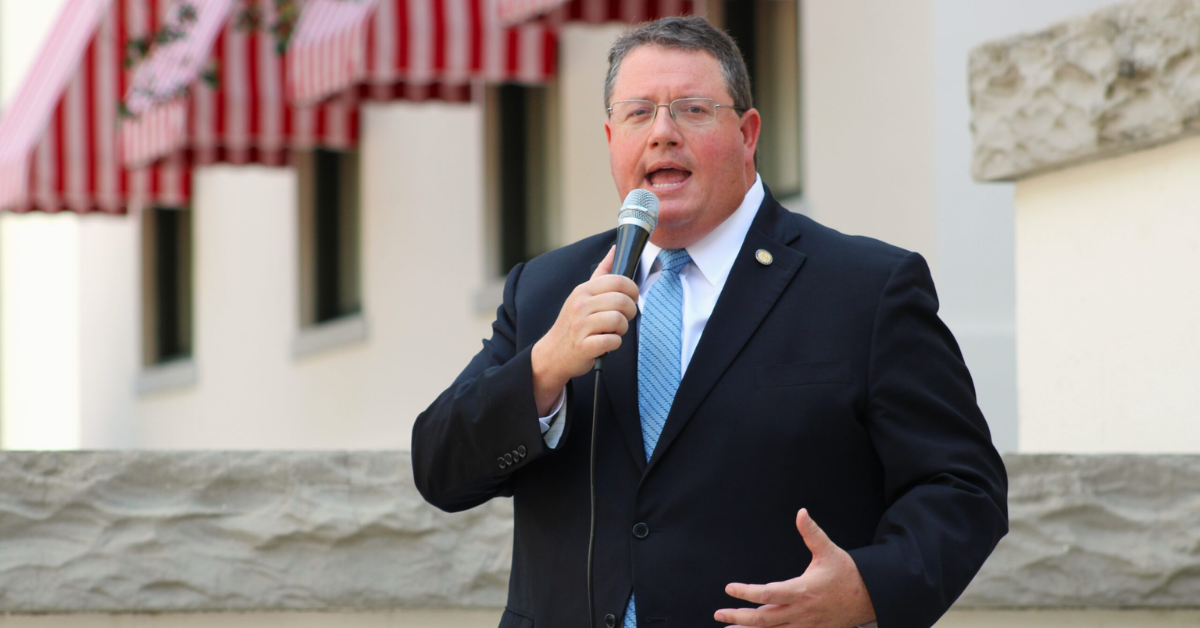Florida has become a focal point in the national debate surrounding undocumented residents, especially those in higher education. The state has already enacted several laws targeting undocumented people, such as SB-1718, which mandates certain businesses to verify workers’ legal status and criminalizes the transportation of undocumented individuals into Florida. Additionally, hospitals that accept Medicaid are now required to inquire about a patient’s immigration status.
Now, Republican State Senator Randy Fine is proposing new legislation that could significantly impact the state’s colleges and universities. Fine’s proposed bills aim to prevent some undocumented students from attending public colleges and universities and eliminate in-state tuition benefits for these individuals.
Fine’s Bills: A Closer Look Senator Fine introduced two bills in the Florida legislature that target undocumented students in the state. The first bill seeks to ban students who are in the United States without legal permission from being admitted to certain public colleges and universities. Fine specifically targets institutions with acceptance rates of less than 85%, arguing that it is unfair to allow undocumented students to occupy spaces that could otherwise go to Floridian or American students.
Speaking about the proposal, Senator Fine said, “Is it fair to allow an illegal immigrant to take a spot that could be taken by a Floridian or an American? I would argue no.” This bill is aimed at ensuring that only those who are legally allowed to study in the country are given spots at Florida’s public universities and colleges.
In addition to this, Fine has also filed a second bill that would repeal in-state tuition benefits for undocumented students. Under current law, undocumented students who meet certain criteria are eligible for in-state tuition at Florida’s public colleges and universities. This new proposal seeks to end that benefit, arguing that it would help reduce government spending and free up resources to assist Florida residents in need.
Fine further explained his reasoning behind the tuition proposal: “This is a no-brainer way to reduce the size of government and free up resources to help Floridians in need.”
Reactions to the Proposal: A USF Grad Shares His Story While Fine’s proposed bills have gained some support, they have also faced significant pushback from those who believe the measures are too harsh. Cirenio Cervantes, a graduate of the University of South Florida (USF) and a recipient of the Deferred Action for Childhood Arrivals (DACA) program, expressed his disappointment with the proposed changes. Cervantes holds three degrees from USF, including a master’s degree.
Cervantes described the proposed legislation to end in-state tuition as “heartbreaking.” He explained that the financial burden of out-of-state tuition would make it incredibly difficult, if not impossible, for many undocumented students like him to afford a college education.
“Having three degrees is not easy, and then having to pay out-of-state would make it very difficult, very unattainable,” Cervantes shared in an interview with Bay News 9. For many undocumented students, the in-state tuition benefit is crucial in making college accessible and affordable.

Undocumented Students in Florida: A Larger Debate The debate over the proposed legislation touches on a larger issue that has been a subject of national discussion for years: the role of undocumented individuals in the education system and broader society. While some argue that undocumented students should not be given the same opportunities as legal residents, others contend that denying them access to education only perpetuates cycles of poverty and inequality.
For students like Cervantes, who have lived in the U.S. for much of their lives and contribute to the local economy, being denied access to education or forced to pay out-of-state tuition could be devastating. These students argue that their education is not only an investment in their future but also in the future of the state and country.
Opponents of the bill argue that denying education to undocumented students goes against the principles of fairness and equality. They also point out that many undocumented individuals contribute significantly to Florida’s economy, with many working in essential industries such as agriculture, construction, and hospitality.
What’s Next for Florida’s Undocumented Students? The proposals put forward by Senator Fine are still in the early stages of the legislative process, and it is unclear whether they will pass. However, the controversy surrounding the bills has already sparked intense debates within the state and beyond.
As the bills make their way through the legislative process, advocates for undocumented students and immigration reform will likely continue to voice their concerns. For many, the outcome of this debate could have a significant impact on their ability to pursue higher education in Florida and achieve their academic and career goals.
The proposals from Senator Fine may be just one part of a larger national conversation about the rights of undocumented individuals and their access to education. As Florida lawmakers consider the future of undocumented students in the state, it is clear that the issue of immigration and higher education will continue to be a topic of debate for the foreseeable future.
Disclaimer: This article has been meticulously fact-checked by our team to ensure accuracy and uphold transparency. We strive to deliver trustworthy and dependable content to our readers.

